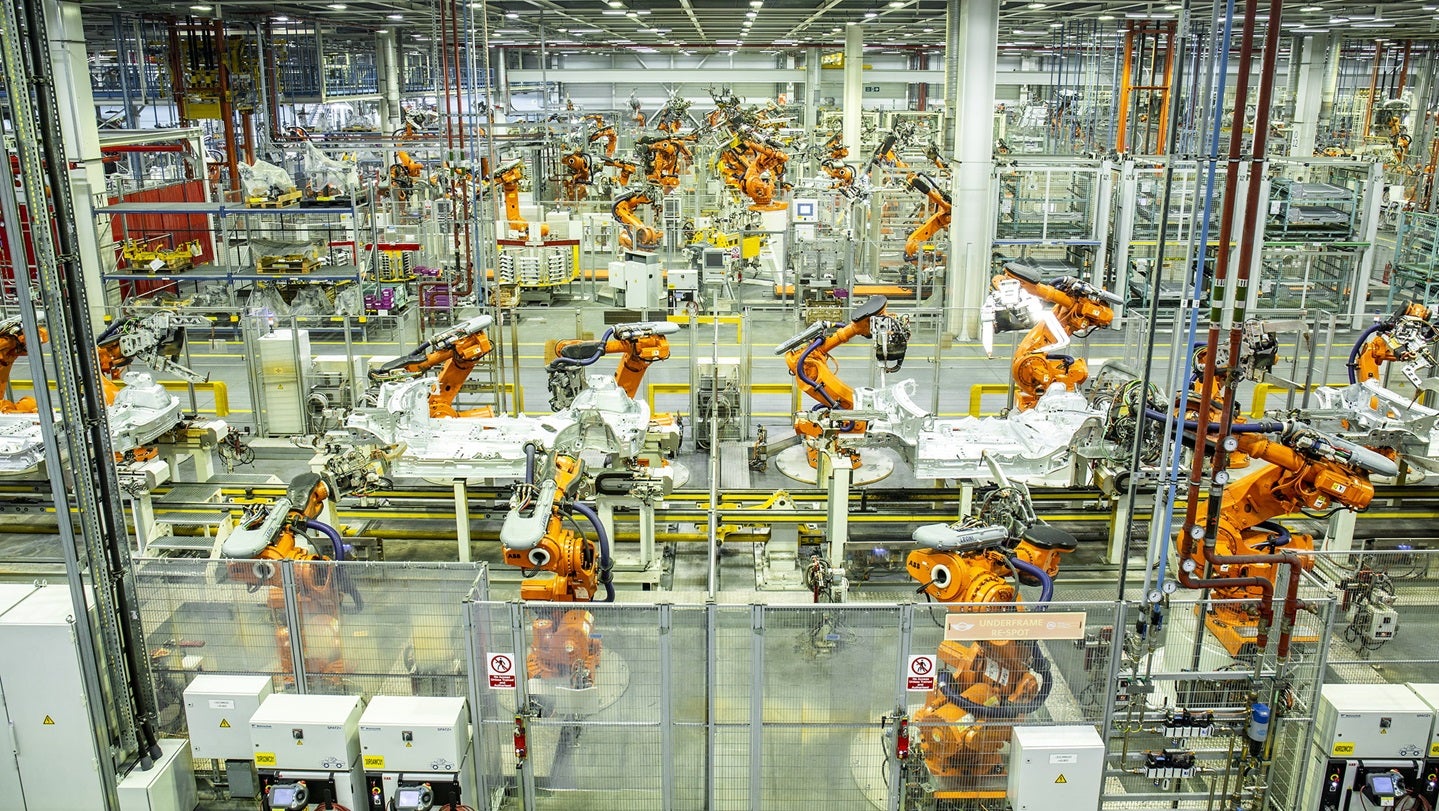
The UK’s car and commercial vehicle production registered an 11.6% decline in February 2025, compared to February 20244, according to the Society of Motor Manufacturers and Traders (SMMT).
This marks the 12th consecutive month of decline in car manufacturing.
The decrease to a total output of 82,178 units represents a reduction of 10,787 vehicles compared to the same period a year ago, influenced by factors such as subdued local and international markets, model transitions, and plant restructurings.
In a press statement, the SMMT said: “The overall performance reflects the challenges the sector faces globally. Measures are needed urgently to bolster the UK’s competitiveness and drive consumer demand.”
Despite the overall downturn, exports continued to dominate production, with more than 80% of vehicles manufactured in February destined for international markets. Export volumes saw a slight increase of 1.3%, totalling 60,034 units.
However, production for the domestic market plummeted by 33.3% to 13,780 units.
The European Union remained the UK’s largest car export destination, accounting for 53.5% of exports, followed by the US (19.7%) and China (6.3%).
While exports to the EU and China saw dip of 9.6% and 10.9% respectively, exports to the US rose by 34.6%. Turkey and Japan also saw substantial growth in exports from the UK, with increases of 75.5% and 119.2%, respectively.
However, car production for the UK market saw a significant reduction of 33.3% to 13,780 units.
Production of electrified vehicles, including battery-electric, plug-in hybrid, and hybrid cars, dropped by 5.6% to 27,398 units.
These vehicles, however, have increased their production share year-on-year and now represent 39.6% of the total output.
The decrease in electrified car volumes is less pronounced compared to the overall production decline.
Commercial vehicle (CV) production experienced a more severe downturn, falling by 35.9% to 8,364 units, largely due to a reduction in van production.
This follows an exceptional performance in February 2024, which was the best since 2008. Domestic demand drove CV output, with a 55.2% share and a significant increase in units produced for the UK market.
Conversely, CV exports plummeted by 62.7% to 3,743 units, with the vast majority destined for the EU.
SMMT chief executive Mike Hawes said: “These are worrying times for UK vehicle makers with car production falling for 12 months in a row, rising trade tensions and weak demand. The market transition is not keeping pace with ambition and, while the industry can deliver growth – and green growth at that – it needs policies to deliver that reality.
“It was disappointing, therefore, to hear a Spring Statement that did nothing to alleviate the pressure on manufacturers and, moreover, confirms the introduction next month of additional fiscal measures, which will actually dissuade consumers from investing.
“Without substantive regulatory easements, our manufacturing viability remains at risk and the UK’s transition to zero-emission mobility under threat.”
SMMT recently reported that the UK witnessed a 1% drop in new car registrations in February 2025 compared to the same month last year.







